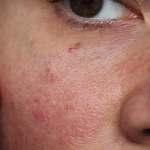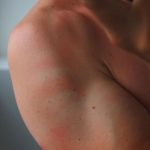Aging is part of life. At some point, wrinkles and other aging signs, like dark spots, will appear on your skin. The older we get, the more our skin becomes thinner and loses fat. Aged skin is more susceptible to bruises, scratches, bumps and spots. Thanks to advances in skincare and plastic surgery, many individuals can reduce or diminish the signs of aging through creams, serums and surgeries. However, creams and cosmetic procedures are not the only ways to combat skin aging. To truly understand what is causing your skin to age prematurely, you need to evaluate your lifestyle. In this guide, you will discover ten factors that may be aging your skin.
Frequently smoking cigarettes
Smoking isn’t just bad for your health and hygiene; it also affects your skin’s appearance. Toxins released from cigarettes cause premature aging, dryness and wrinkles in chronic smokers. Overall, all doctors recommend that people quit smoking to help not only their health but their appearance as well.
Abusing tanning products
Tanning oils and beds allow your skin to absorb excessive amounts of UV rays. These UV rays change the DNA in skin cells. Damage in skin cells leads to wrinkles and other signs of aging prematurely. Contrary to popular belief, there is no such thing as a “healthy glow” from tanning. When you use a tanning bed to tan, you are damaging your skin by exposing yourself to harmful UV rays.
Skipping the sunscreen
You don’t just have to worry about UV rays from tanning beds. The sun releases UV rays every time you step out under it. As most people have experienced, overexposure to the sun can cause sunburns and tans, which lead to damage causing premature aging such as sunspots and even skin cancer. You can lower your risk by wearing sunblock daily.
Neglecting moisturizers
After hitting puberty, your skin begins to lose its elasticity and collagen. Fix your skin’s elasticity and lack of collagen by hydrating it with a moisturizer. The sooner you start taking care of your skin, the longer it will look bright and youthful. See more information on which moisturizers our dermatologists suggest.
Drinking caffeine or alcohol
Excessive consumption of caffeine and alcohol causes dehydration. Since dehydration means the loss of water in your body, it affects the quantity of water that your skin retains. This lack of moisture causes your skin to become dry and more prone to early wrinkles. To prevent your skin from aging, limit your alcohol and caffeine intake.
Lacking good sleep habits
Sleep doesn’t just refresh your brain, it also rejuvenates your skin. Overnight, your cells have the opportunity to regenerate without having to deal with skin irritants like dirt, sweat and pollutants. Studies have shown that poor sleep quality increases skin aging, causing symptoms like wrinkles and a diminished skin barrier. Though life can get busy, try to aim for seven to eight hours of sleep every night.
Not handling your stress
Just like any other body issues, stress makes everything worse. Stress triggers poor sleep habits, and combining the two will cause an inflammatory response in your body. Between stress hormones and inflammation, your skin will rapidly age. By learning how to cope with stress, you will reduce your chances of rapid skin aging tremendously.
Toxic and unhealthy environments
The setting you live in affects your skin. Areas high in air pollutants cause skin irritation, redness and blemishes, resulting in more damage as the skin ages. Unfortunately, you can’t always control where you live or the air quality, but you can protect yourself by using air filters and staying inside on days with high levels of pollution.
Imbalanced food tendencies
Consuming excessive amounts of sugar and refined carbohydrates cause acne and eczema outbreaks. These skin conditions, if not treated properly, can lead to scars, dryness and wrinkles. Doctors recommend having a well-balanced diet that includes healthy proteins, carbohydrates, sugars, fruits and vegetables.
Genetic factors that cause premature aging
Unfortunately for some people, premature aging can be hereditary. A rare genetic condition called progeria can cause early signs of aging in children and early adulthood. Disorders like Werner syndrome affect one in one million people, and Hutchinson-Gilford syndrome affects one in eight billion individuals. Both conditions involve rapid skin aging. Most people do not have to worry about genetics causing skin aging, but if you have concerns or these syndromes run in your family, consult your doctor immediately.
Aging skin as the sign of a good life
Although skin aging eventually happens, you can slow down the process by protecting your skin. These were just ten factors that cause skin aging. Other components can cause aging, like other health conditions and drug use. If you have any questions or concerns about your skin’s health, contact your dermatologist to go over what is best for you.






